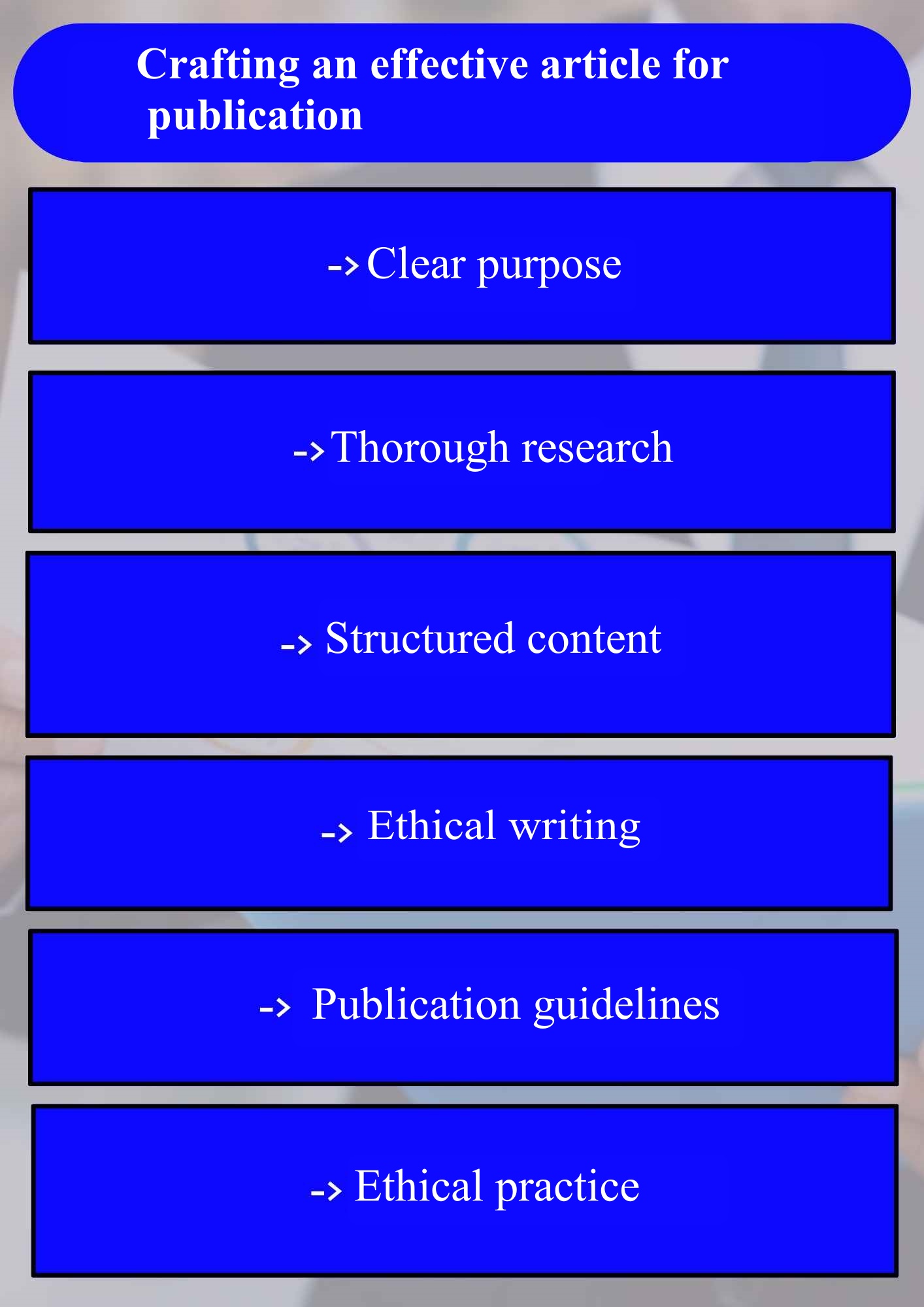|
Getting your Trinity Audio player ready...
|

Introduction:
Publishing your research or articles is an exciting journey but comes with responsibilities. Good publication practices are essential not only for the success of your work but also for upholding the integrity of the academic and scientific community. This blog will explore the key aspects of good publication practices, including ethical considerations, authorship guidelines, plagiarism prevention, and more. So, if you’ve ever wondered how to write a good article for publication or what publication guidelines entail, read on for valuable insights.
How to Write a Good Article for Publication
- Start with a Clear Purpose: Before you put pen to paper (or fingers to keyboard), define the purpose of your article. What message or knowledge are you aiming to share with your readers?
- Thorough Research: A strong foundation is crucial. Conduct comprehensive research to gather relevant information and data to support your article.
- Structure Matters: Your article should have a clear structure with an introduction, body, and conclusion. Subheadings help organize your content.
- Authorship Guidelines: Be aware of authorship criteria in your field. Give credit where it’s due and avoid ghost authorship or honorary authorship.
- Ethical Considerations in Publishing:
- Plagiarism Prevention: Always cite your sources properly to avoid plagiarism. Plagiarism detection tools can help.
- Proper Citation and Referencing: Follow the appropriate citation style (e.g., APA, MLA) and ensure all sources are accurately referenced.
- Transparency: Disclose any potential conflicts of interest.
Publication Guidelines Demystified
- Selecting the Right Journal: Choose a journal that aligns with your research and target audience. Review the journal’s guidelines before submission.
- Formatting and Style: Adhere to the journal’s formatting and style requirements. Consistency is key.
- Peer Review Process: Understand the peer review process. Address reviewers’ comments professionally and thoroughly.
Best Practices in Publication Ethics
- Respect Intellectual Property: Seek permission to use copyrighted materials and always attribute sources correctly.
- Data Integrity: Ensure the accuracy and integrity of your research data. Retain your raw data for potential verification.
- Open Access vs. Traditional Publishing: Familiarize yourself with the pros and cons of open access and traditional publishing models.
- Ethical Dilemmas: Be prepared to responsibly navigate ethical dilemmas such as duplicate publication and data fabrication.
Conclusion: Navigating the complex world of publication requires a commitment to ethical standards, clarity of purpose, and adherence to guidelines. By following these best practices and ethical considerations, you can enhance the quality of your work and contribute to advancing knowledge in your field.
Remember, good publication practices benefit you as an author and the broader academic and scientific community. Your work is a valuable contribution, and by following these guidelines, you can ensure it reaches its full potential and impact. Happy writing and publishing!




